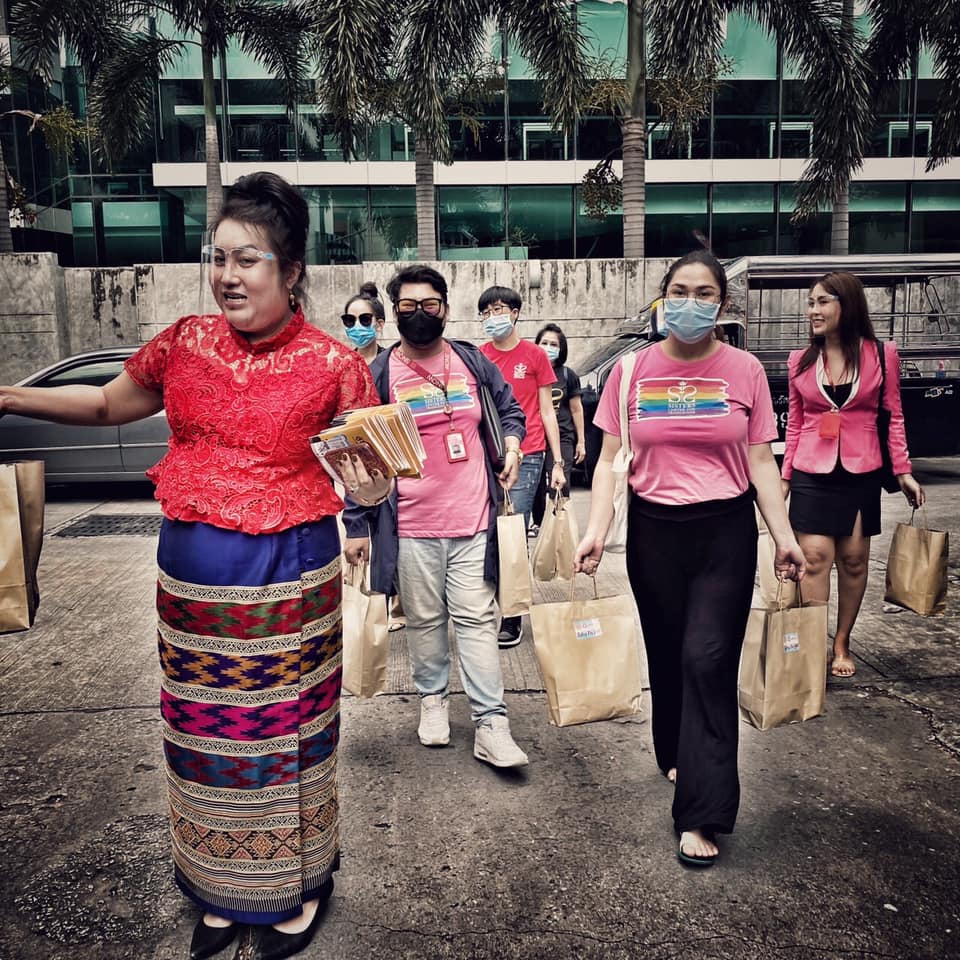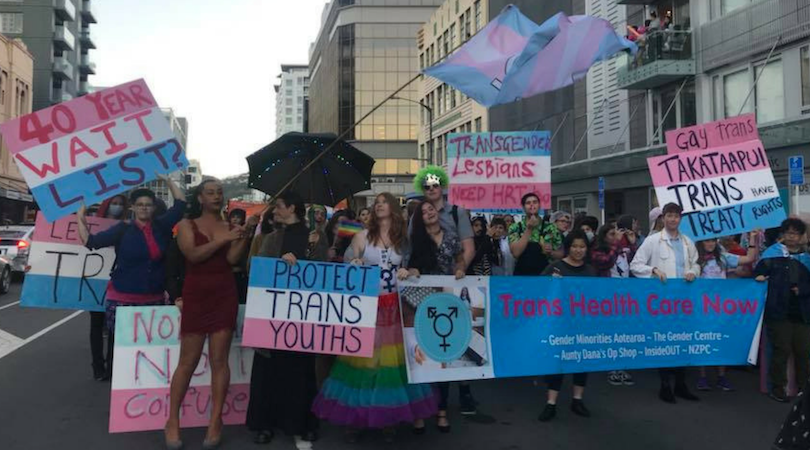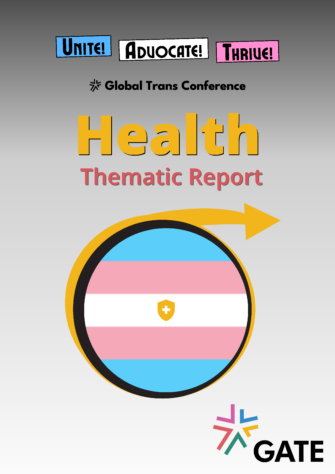Why trans health matters
Have you ever had a doctor refuse to treat you, not because they lacked the skills, but because of who you are? Can you imagine having to educate your own doctor about your health needs by doing medical research for them? How about being deliberately and repeatedly misgendered in front of other patients? For many trans and gender diverse people, these aren’t hypothetical situations – they are everyday realities.
Everyone deserves access to healthcare, yet many trans and gender diverse people face barriers to even the most routine medical care. Stigma, discrimination and ignorance within healthcare systems result in poor treatment, misdiagnoses and in some cases, outright denial of care. These obstacles lead to serious health disparities, affecting both the mental and physical well-being of trans people worldwide.

Understanding trans healthcare needs
Trans health is often neglected due to stigma, bias, discrimination and a lack of education within healthcare systems and society as a whole. There are three main areas where trans and gender diverse communities struggle to access appropriate care:
- General healthcare
- Gender-affirming care
- Sexual and reproductive healthcare
General healthcare
Trans people frequently encounter stigma and discrimination when seeking routine medical care. Many healthcare professionals lack training on trans health, leading to misdiagnoses or improper treatment. One common issue is known as ‘trans broken-leg syndrome’ – a term used when doctors blame any medical issue, no matter how unrelated, on a person being trans. This can result in serious medical conditions being overlooked.
Beyond misinformation, trans people are frequently outright denied care, even in emergencies. In countries where trans identities are criminalized, accessing even basic healthcare can be nearly impossible. Socioeconomic factors also impact access to healthcare – many trans and gender diverse community members experience barriers to accessing education and employment opportunities. Intersecting discrimination based on race, poverty, refugee status, drug use, sex work, and disability further exacerbates marginalization. Poverty is a major issue, particularly in countries without universal health coverage, where people cannot access health services without experiencing financial hardship. The fear of mistreatment as a result of stigma and discrimination often causes trans people to avoid healthcare altogether, even when they’re critically ill.
Gender-affirming healthcare
Gender-affirming healthcare includes hormone replacement therapy (HRT), surgeries, and other procedures that help trans people align their bodies with their gender identity. However, these services are often prohibitively expensive and difficult to access due to limited availability and a lack of trained healthcare providers. Even when trans people manage to access medical transition, post-treatment care can be inconsistent because most healthcare professionals are unfamiliar with trans-specific needs.
This lack of access to gender-affirming healthcare has severe consequences. Without it, trans people face increased risks of mental health struggles, discrimination, and poorer overall well-being. Economic barriers, coupled with a shortage of knowledgeable healthcare providers, make these life-saving treatments inaccessible to the majority of trans and gender diverse people.

Sexual and reproductive healthcare
Trans people face unique challenges in accessing sexual and reproductive healthcare. Many are at higher risk of acquiring HIV and other sexually transmitted infections (STIs), yet they often encounter systemic barriers that prevent them from receiving proper care. Criminalization and discrimination push many trans people into informal economies like sex work, further increasing their vulnerability.
Medical misinformation is also a significant issue. For example, some trans people avoid taking HIV medication due to a mistaken belief that it will interfere with hormone therapy. This is despite clear evidence that these treatments do not interfere with each other. Community-led services play a crucial role in combating misinformation and ensuring that trans people have access to accurate health information and can make informed choices about their treatment.
Critical issues impacting trans health
Beyond direct healthcare barriers, broader systematic issues also affect trans health, including:
- Discrimination and stigma towards trans and gender diverse people in society and within healthcare settings
- Legal obstacles, including restrictions on accessing legal gender recognition and changing identity documents, criminalization of trans identities, and bans on gender-affirming care
- Healthcare systems that lack the training and resources to provide appropriate trans-specific care
Addressing these disparities requires legal reforms, improvements in medical education, and shifts in societal attitudes toward trans and gender diverse communities.

Solutions for improving trans health
Despite these challenges, progress is being made towards improving trans health. GATE is at the forefront of global efforts to improve healthcare access for trans and gender diverse communities. Key initiatives include:
- Funding Trans-Led Organizations: Trans-led organizations are at the forefront of advocating for trans health. They raise awareness, provide direct healthcare support, and push for inclusive policies. However, these organizations are severely underfunded, making financial support crucial for systemic change. Discover some of the trans-led organizations that GATE supports in our Community Spotlights.
- Legal and Policy Advocacy: Ensuring healthcare access requires changes in legislation and broader healthcare structures. This includes legal gender recognition for all, decriminalization of trans identities, and investment in inclusive healthcare systems. Discover more about GATE’s work at the United Nations, where we advocate for legal and policy changes.
- Countering Anti-Gender Movements: The anti-gender movement is a global effort by far-right groups to restrict trans rights, gender equality (including women’s rights) and bodily autonomy (including access to sexual and reproductive healthcare for everyone). Read more about how GATE actively works to counter anti-gender movements by pushing back to safeguard human rights.
- Global Health Campaigns: Initiatives like UHC2030 and Not A Criminal advocate for universal healthcare access and the repeal of discriminatory laws, directly improving trans health outcomes.
How you can support trans health
Achieving trans health equity requires collective action. Here’s how you can help:
- Learn about trans identities and the barriers trans people face in healthcare. Start by reading this article and sharing it!
- Speak up against transphobia and discrimination in your communities and online.
- Support trans-led organizations by donating and amplifying their work. You can support GATE’s work by donating today!
- Advocate for inclusive policies and legal protections for trans people.
- Recognize trans rights as a public health issue and demand accountability from policymakers.
By working together, we can ensure trans and gender diverse people receive the healthcare we deserve so that we can live healthy, fulfilling lives with the opportunity to thrive, just like anyone else.






